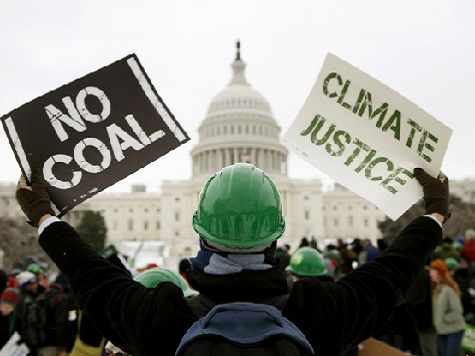Leading liberal thinkers such as Thomas Friedman often lament that the U.S. can’t be “China for a day,” with a single day set aside for a dictatorial government to avoid the messiness of democracy and simply impose the radical policies they think are necessary. Perhaps President Obama was inspired, then, by his trip to China.
Under an agreement signed Wednesday in Beijing, “the United States would cut its 2005 level of carbon emissions by 26-28% before the year 2025. China would peak its carbon emissions by 2030 and will also aim to get 20% of its energy from zero-carbon emission sources by the same year,” CNN reports.
It’s the first time China has agreed to reduce CO2 emissions, and the deal may be easier to implement there than here.
Yet the Obama administration is already anticipating that Republicans in the newly-elected Congress may try to oppose this deal. So on this issue, as on immigration, they’re getting ready to act on their own.
“Congress may try to stop us, but we believe that with control of Congress changing hands we can proceed with the authority we already have,” an unnamed administration official told CNN. After all, this person added, opposing CO2 reductions “is really the crusade of a narrow group of people who are politically motivated and have made this a cause celebre, but we believe we will be successful.”
Even without congressional action, emissions in the U.S. have been plunging in recent years, but that’s not necessarily good news. Countries in recession use less energy, and — in large part because of the global economic slowdown — the International Energy Agency reports that total U.S. CO2 emissions have fallen by 7.7 percent since 2006. That’s change we can believe in, but not change for the better.

COMMENTS
Please let us know if you're having issues with commenting.